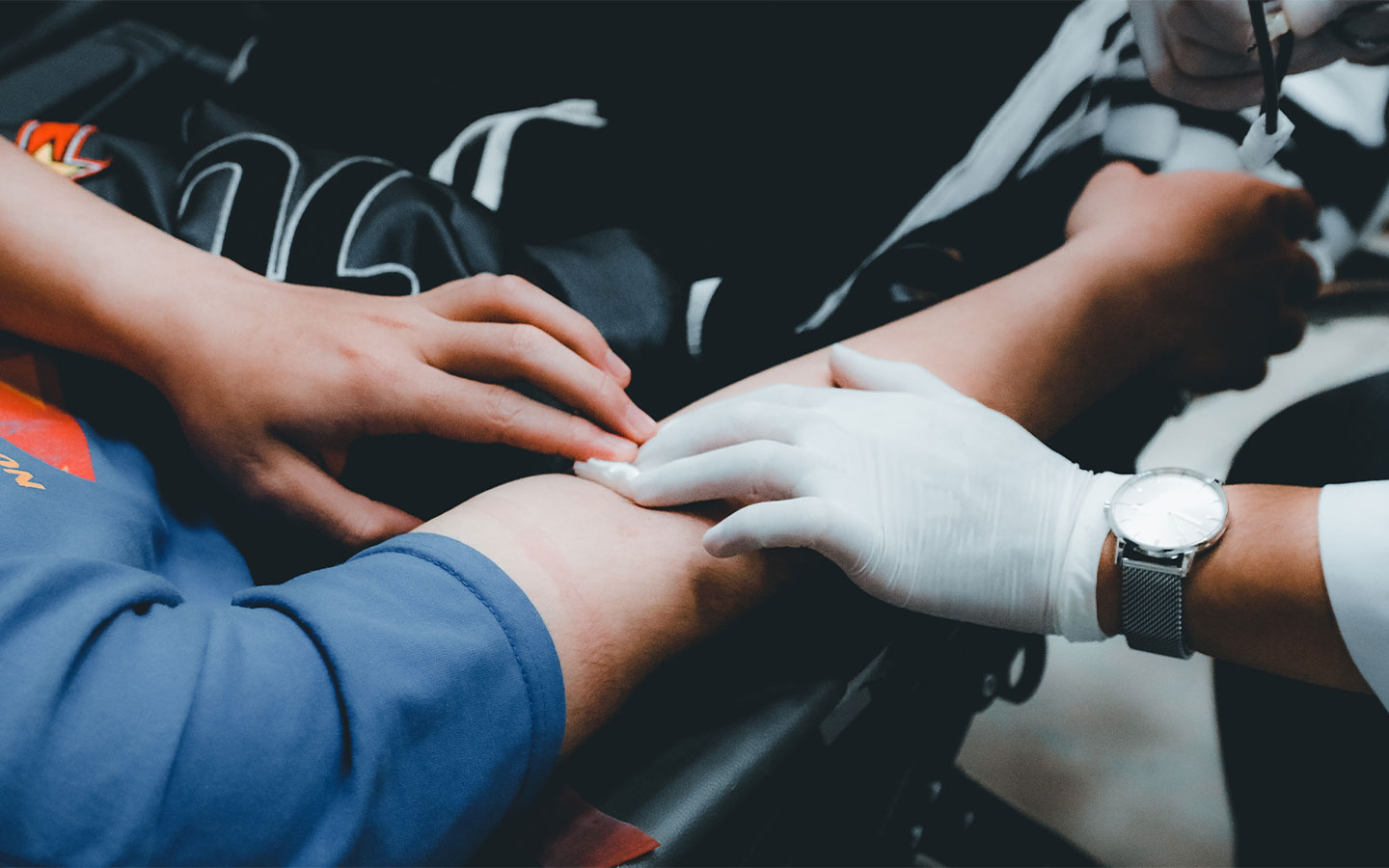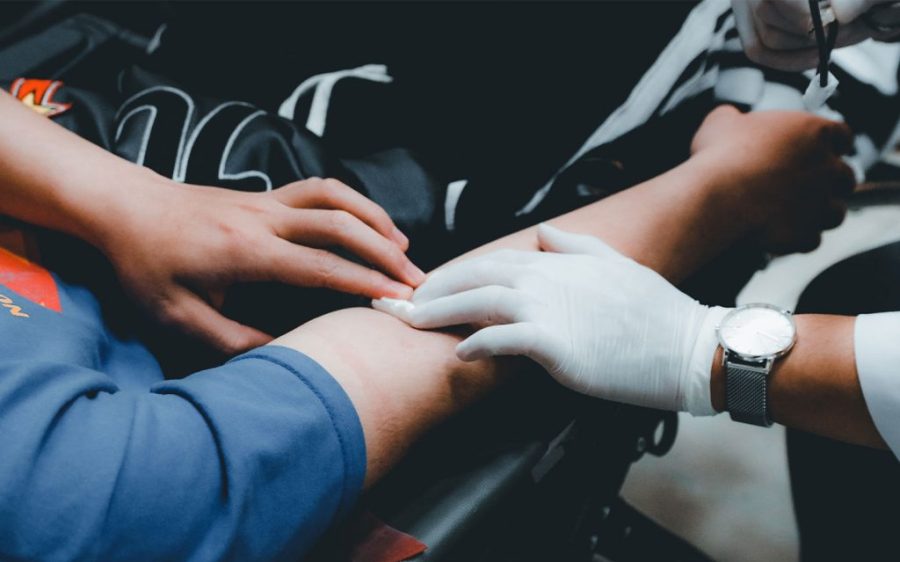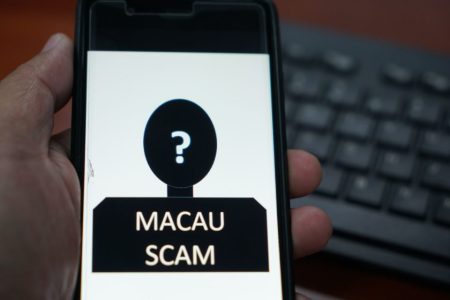Within 24 hours of a blood donation, a healthy body completely replaces the volume of blood taken from it – so if you’re worried about feeling tired after giving blood, which is the most commonly reported side effect, set your mind at ease. The fatigue quickly passes, which is another reason why giving blood is probably the easiest way to save lives.
In Macao, residents are impressively keen donors, according to the Macao Blood Transfusion Service (MBTS), which manages the municipal blood bank.
In 2022, over 18,000 individuals donated blood (averaging more than 50 people per day). More females donated than males, and thirty percent of all donors gave blood at least three times that year, according to the MBTS.
Sometimes, the service has to turn donors away, says its director Crystal Hui. Not because they’ve recently travelled, are pregnant, or have certain medical conditions (which are all regular reasons people can’t give blood) – but because there’s already a surplus of the stuff in storage.
“When the blood stock is full, we ask people to come back next time because the blood has a limited life span and we do not want to waste the blood donated by people,” the veteran haematologist explains.
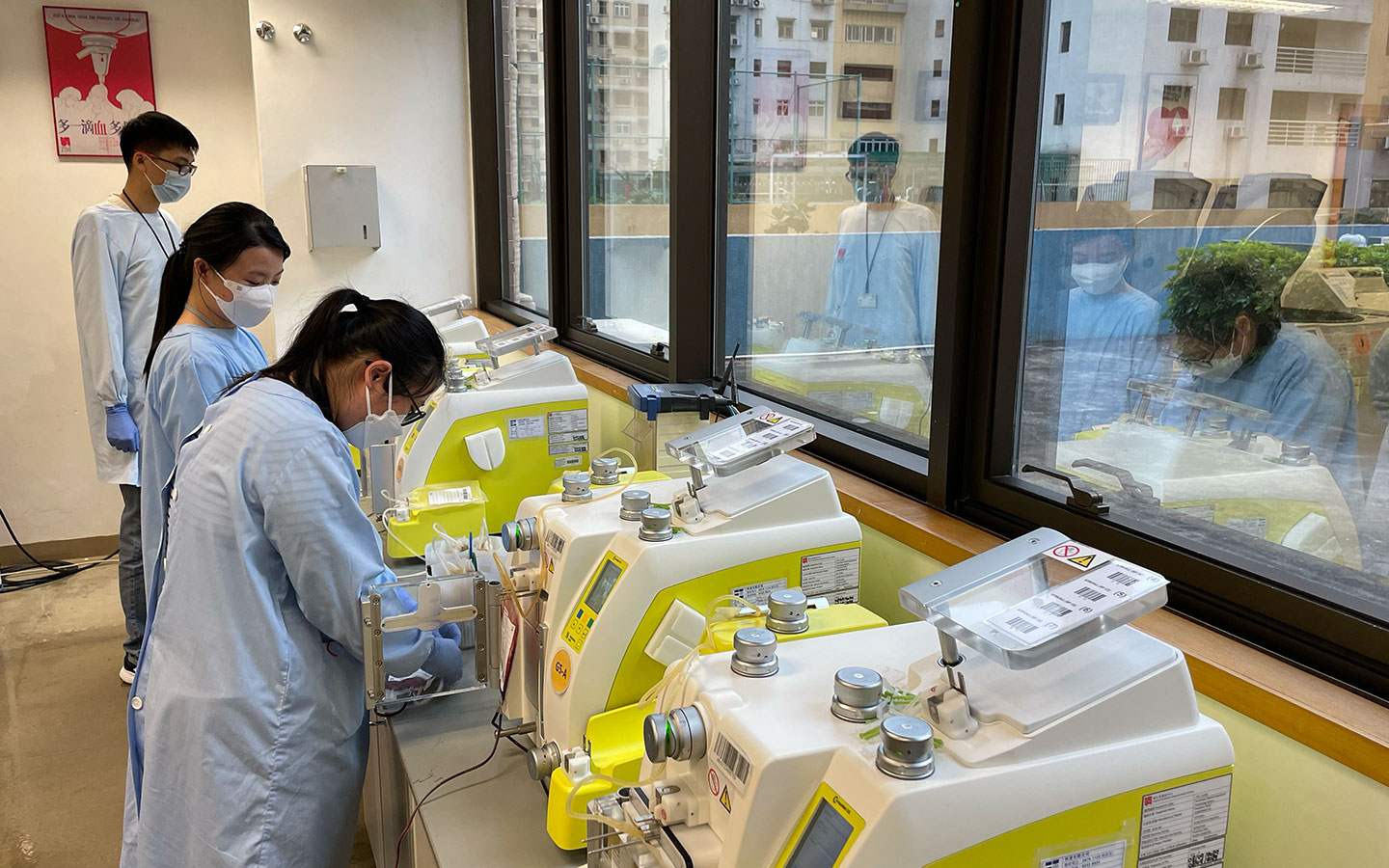
Blood’s four components have varying shelf-lives. A so-called ‘whole blood’ donation stays good for up to 42 days. Oxygenating red blood cells (the most sought after component) on their own also last up to 42 days; as do white blood cells, which are often removed from donations because they’re the riskiest component to transfuse. Platelets, which help with clotting, have a short shelf-life of just 5 days. Blood’s bulk ingredient, liquid plasma, is fine to be frozen for up to a year.
Depending on how much blood is in the bank, MBTS deems Macao’s supply either dangerous, safe, satisfactory or sufficient. Hui says many regular donors proactively check up on stocks of particular blood types via MBTS’s website in case their own type is in short supply.
“When they see the blood stock is below the ‘safe’ level, they quickly take the initiative to come and donate their blood,” she says.
“And every time we need to have more donors, we make an announcement and people will come right away.”
That last happened at the start of 2023, when the January Covid-19 outbreak slowed donation rates. While there’s no evidence the virus can be transmitted via blood transfusions, people aren’t allowed to donate blood until two weeks after any Covid symptoms subside.
In January, hundreds of people rallied at the call for donors. Macao’s blood supply was replenished in a matter of days.

‘We should be proud of ourselves’
This generosity with one’s blood is not seen everywhere in the world, though is not unusual within Greater China. In 2018, a study by multinational market research firm Ipsos asked people across 28 countries whether they agreed with the statement, “I frequently give blood to help others.”
Only 11 percent of Japanese respondents, 18 percent of UK respondents, and 23 percent of US respondents said they did. Meanwhile, 40 percent of Chinese respondents agreed with the statement. It was the fourth highest response after Saudi Arabia (the highest, with 58 per cent), Turkey, and India. Only 22 percent of Chinese respondents said they disagreed.
Many places around the world experienced blood shortages during the Covid-19 pandemic, including Hong Kong. But Macao did not – even with demand for blood increasing over that period, says Hui. She adds that “we should be proud of ourselves” for this community effort.
The city’s demand for donated blood went up because border restrictions stopped locals from travelling to Hong Kong for various medical treatments. Conditions typically requiring blood transfusions include cancers, kidney problems, anaemia, blood disorders and bleeding disorders; as well as surgeries and accidents resulting in severe injuries.
Before 2020, around 50 units of blood were needed by patients in Macao each day. During the pandemic, Hui says it was more like 80. One unit of blood is about 450ml.
[See more: Platelet-rich plasma therapy in Macao: Everything you need to know]
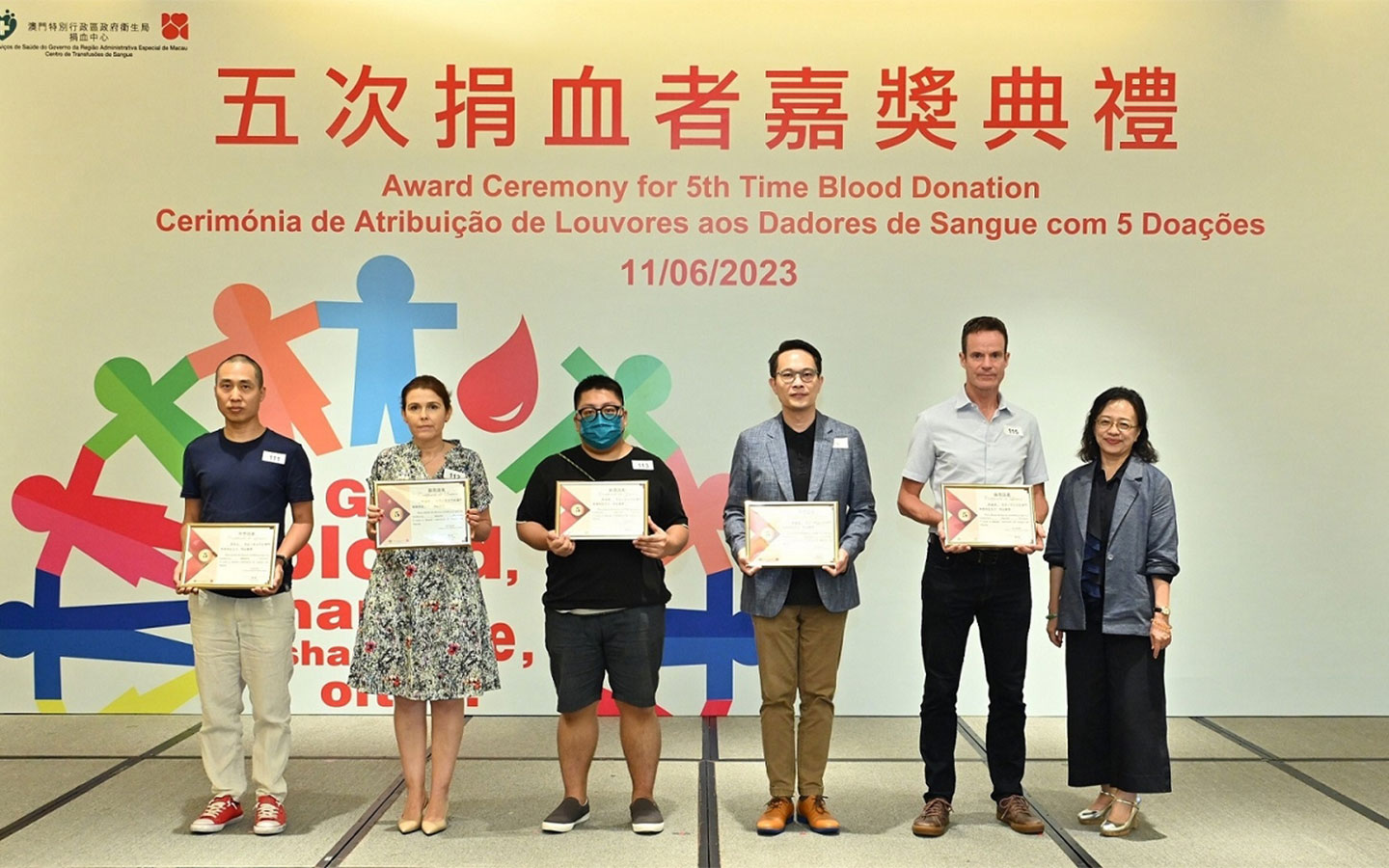
Giving blood in Macao
Since 2018, the number of blood donors in Macao has grown by between 500 and 1,000 people each year. Twenty percent of 2022’s donors belonged to group blood drives initiated by schools, businesses, associations, and government departments. Eight percent made use of MBTS’s bloodmobile.
“Any citizen who is in good health, weighs more than 45 kg, is aged between 17 and 69, leads a safe sexual lifestyle, loves helping others and has about one hour of free time can give blood,” explains Hui.
The hour starts with an eligibility screening and ends with a post-procedure observation period. The blood collection itself takes about ten minutes. As you sit in a comfy chair, a sterile needle and plastic tube convey about one unit of blood from your arm to a special container. Donors get complimentary snacks and drinks at MBTS’s cafeteria before and after giving blood, to boost their blood sugar levels. In Macao, people are allowed to donate around every three months.
Of all the different blood types (namely A, B, AB and O along with their respective Rh factor status – either negative or positive), O- is the most sought after. Known as universal donors, people with the O- blood type can donate to anyone. Those with AB+ blood are universal recipients.
Complete Blood Type Compatibility
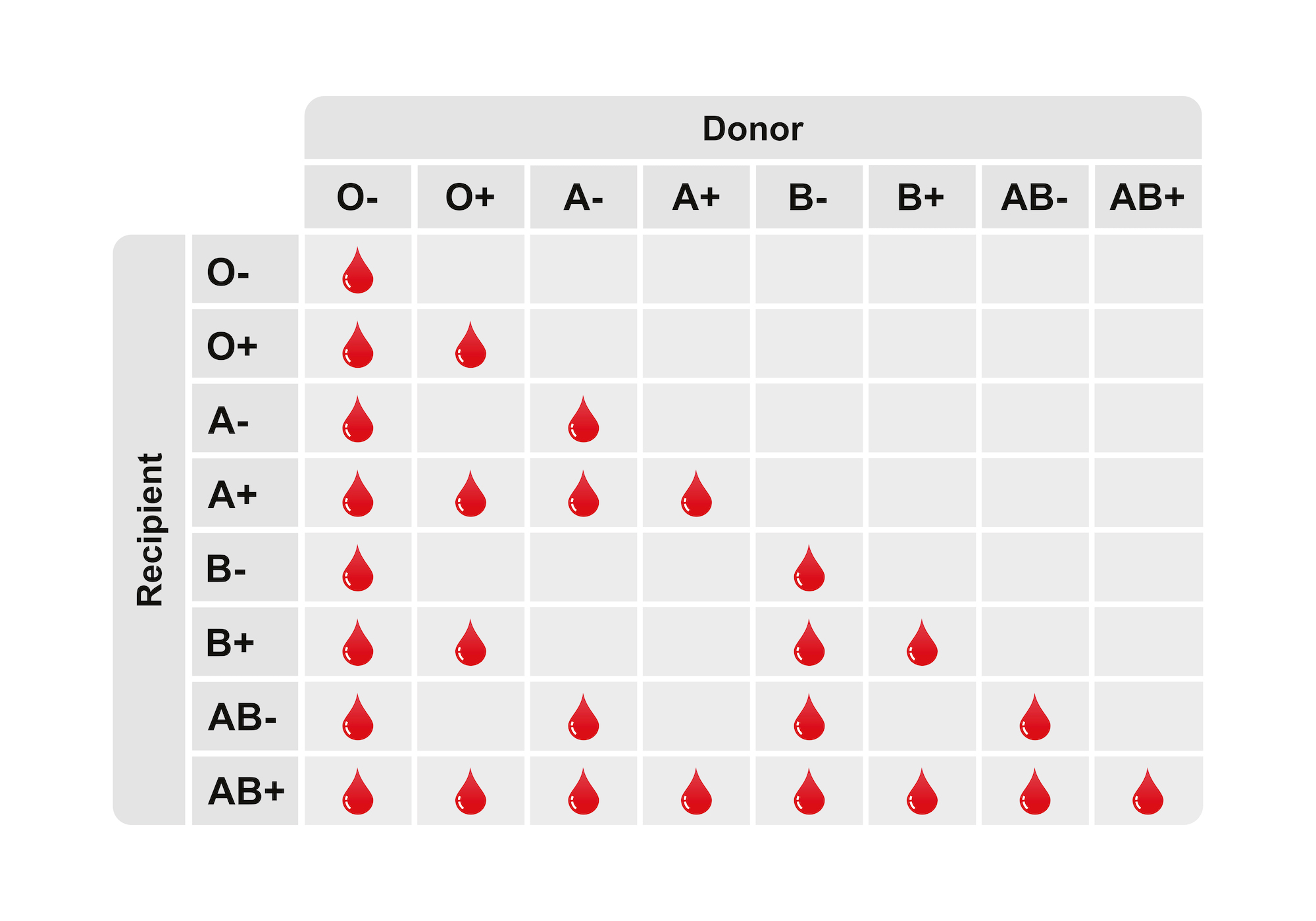
Rules around plasma-only transfusions – used to boost a person’s blood volume and treat various autoimmune diseases, among other things – are the opposite. Those with AB blood are universal donors, those with O blood are universal recipients, and those with other blood types can only accept plasma from one of their own.
[See more: Blood Ties: Meet Macao’s most dedicated blood donors]
Each year, MBTS hosts several events to thank local blood donors for their generosity. On this year’s World Blood Donor Day, 177 people who had donated blood five times over the previous year were presented with special certificates.
“Words cannot express how much the donors have done for our patients,” says Hui. “Every time we ask them to come to donate blood, they show up, and each and every time they save lives. The blood donors are true heroes”.
